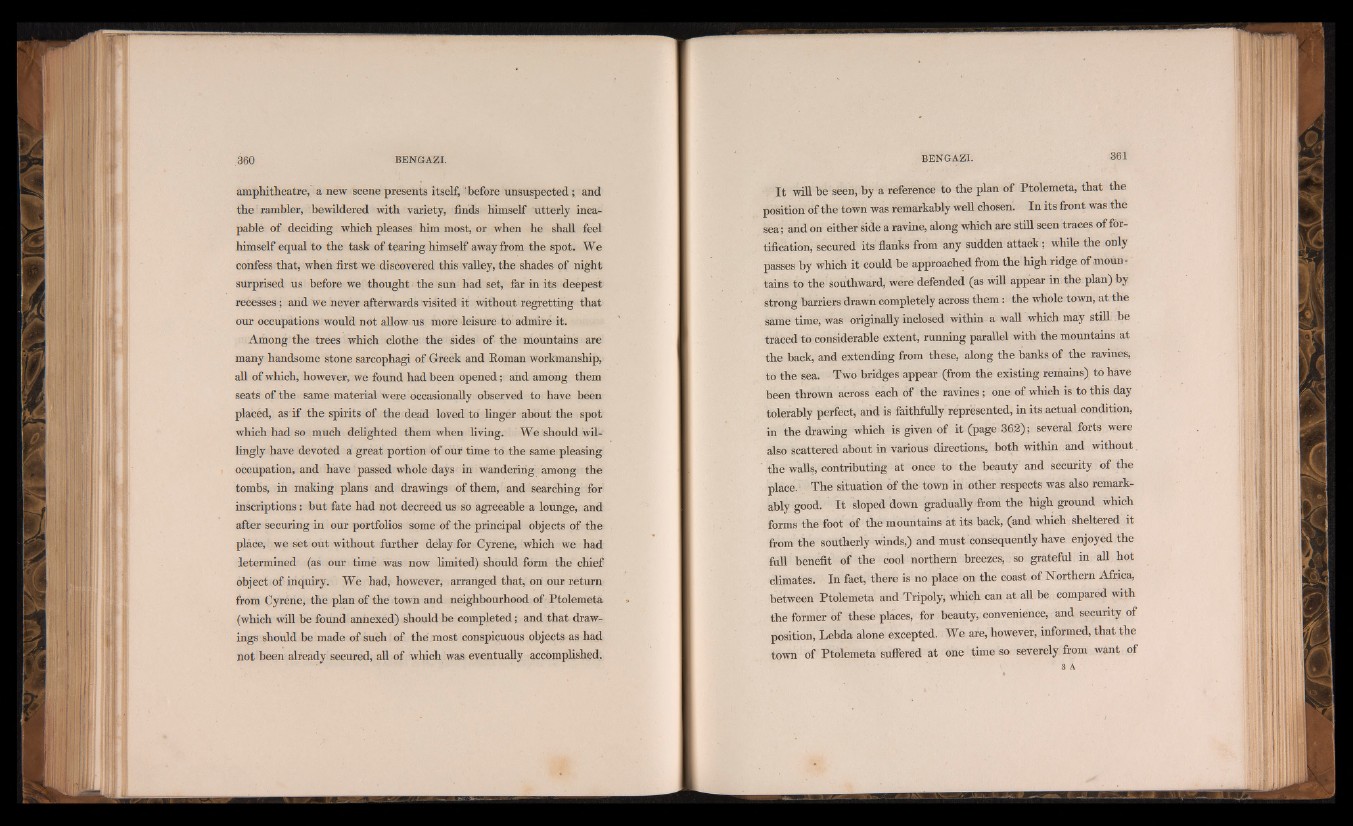
amphitheatre, a new scene presents itself, 'before unsuspected ; and
the rambler, bewildered with variety, finds himself utterly incapable
of deciding which pleases him most, or when he shall feel
himself equal to the task of tearing himself away from the spot. We
confess that, when first we discovered this valley, the shades of night
surprised us before we thought the sun had set, far in its deepest
recesses ; and we never afterwards visited if without regretting that
our occupations would not allow us more leisure to admire it.
Among the trees which clothe the sides of the mountains are
many handsome stone sarcophagi of Greek and Roman workmanship,
all of which, however, we found had been opened ; and among them
seats of the same material were occasionally observed to have been
placed, as- if the spirits of the dead loved to finger about the spot
which had so much delighted them when living. We should willingly
have devoted a great portion of our time to the same pleasing
occupation, and have passed whole days in wandering among the
tombs, in making plans and drawings of them, and searching for
inscriptions: but fate had not decreed us so agreeable a lounge, and
after securing in our portfolios some of the principal objects of the
place, we set out without further delay for Cÿrene, which we had
determined (as our time was now limited) should form the chief
object of inquiry. We had, however, arranged that, on our return
from Cyrene, the plan of the town and neighbourhood of Ptolemeta
(which will be found annexed) should be completed ; and that drawings
should be made of such of the most conspicuous objects as had
not been already secured, all of which was eventually accomplished.
I t will he seen, by a reference to the plan of Ptolemeta, that the
position of the town was remarkably well chosen. In its front was the
sea; and on either side a ravine, along which are still seen traces of fortification,
secured its flanks from any sudden attack ; while the only
passes by which it could be approached from the high ridge of mountains
to the southward, were defended (as will appear in the plan) by
strong barriers drawn completely across them: the whole town, at the
same time, was originally inclosed within a wall which may still be
traced to considerable extent, running parallel with the mountains at
the back, and extending from these, along the banks of the ravines,
to the sea. Two bridges appear (from the existing remains) to have
been thrown across each of the ravines; one of which is to this day
tolerably perfect, and is faithfully represented, in its actual condition,
in the drawing which is given of it (page 362); several forts were
also scattered about in various directions, both within and without.
’ the walls, contributing at once to the beauty and security of the
place. The situation of the town in other respects was also remarkably
good. I t sloped down gradually from the high ground which
forms the foot of the mountains at its back, (and which sheltered it
from the southerly winds,) and must consequently have enjoyed the
fiill benefit of the cool northern breezes, so grateful in all hot
climates. In fact, there is no place on the coast of Northern Africa,
between Ptolemeta and Tripoly, which can at all be compared with
the former of these places, for beauty, convenience, and security of
position, Lebda alone excepted. We are, however, informed, that the
town of Ptolemeta suffered at one time so severely from want of